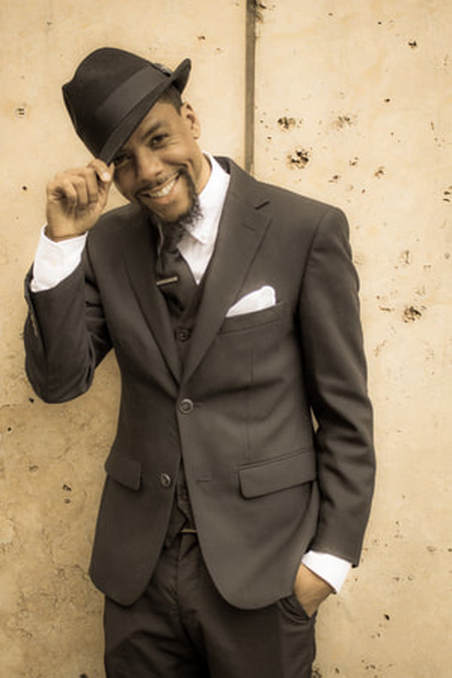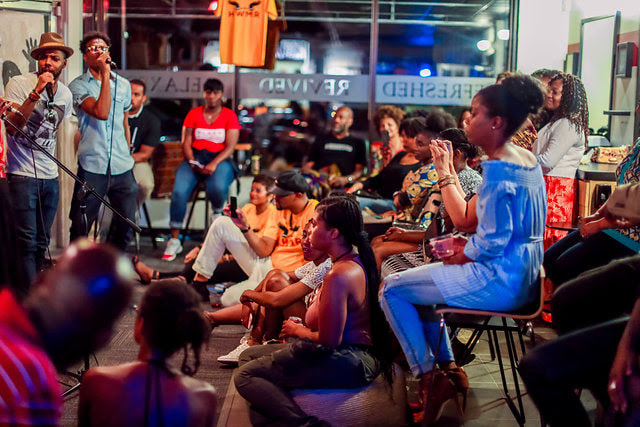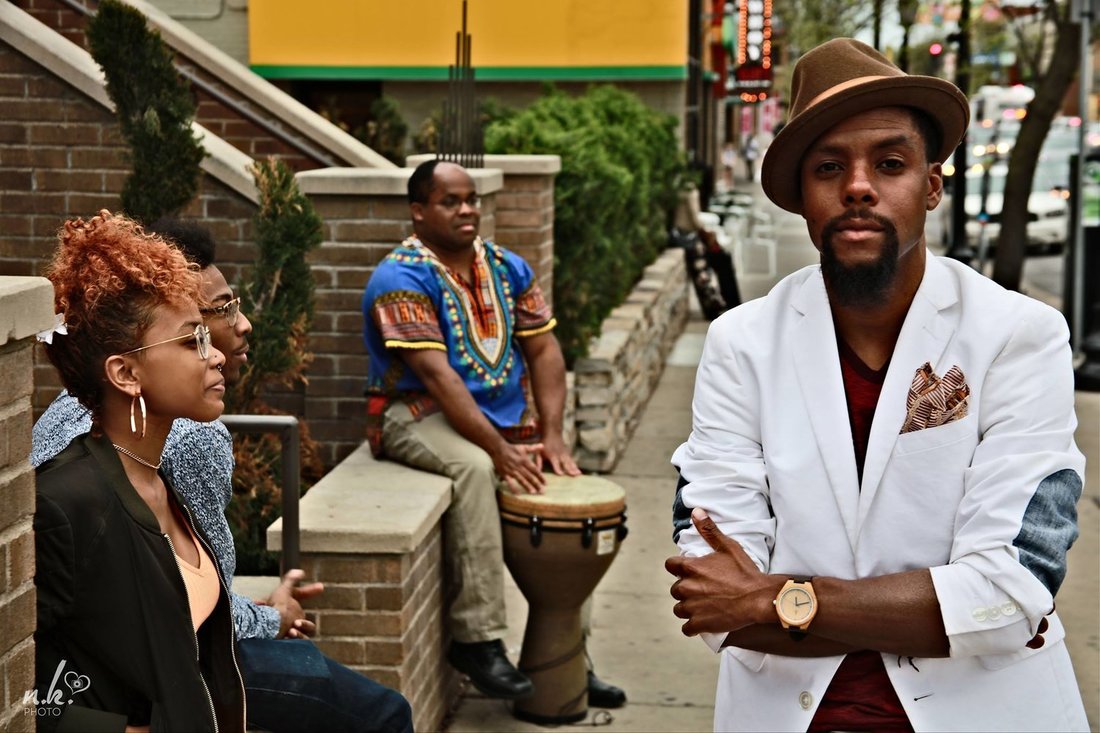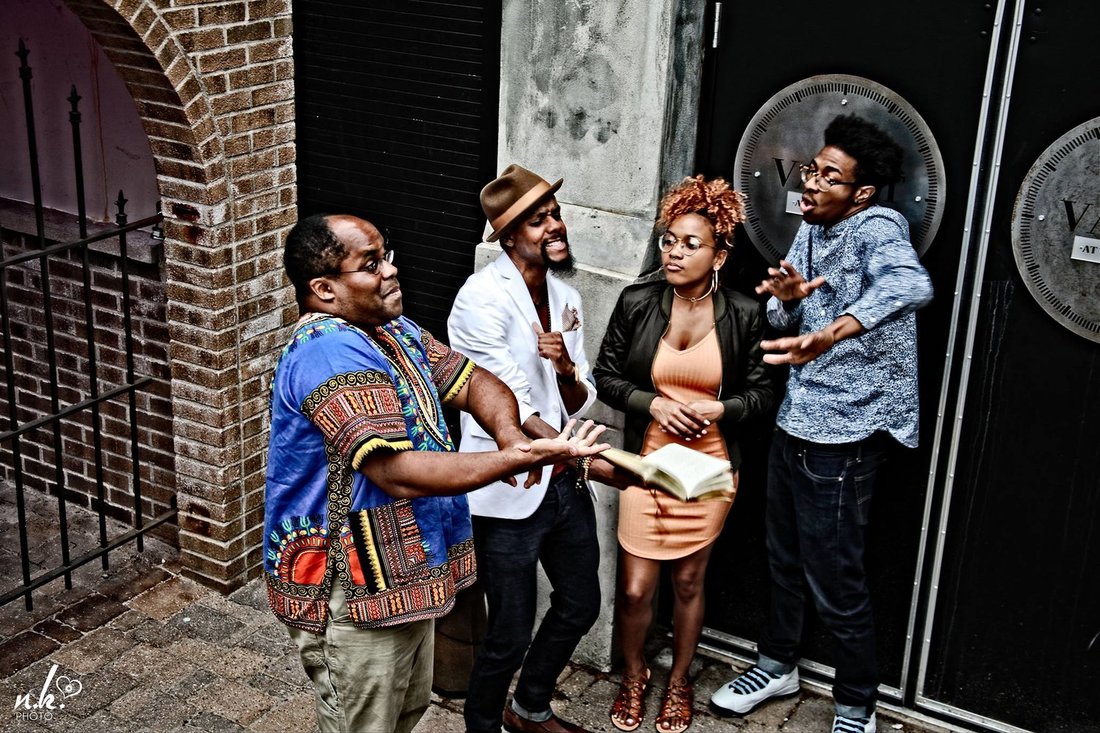- Home
- Process Worldview
- Community
- Art and Music
- Whitehead and Process Thinking
- Podcasts
- Spirituality
- Ecological Civilization
- Education
- Contact
- Social Justice
- Science
- Animals
- Sacred Poems
- Whitehead Videos
- Index of All Titles
- Practicing Process Thought
- Process Spirituality: A Spiritual Alphabet
- Recent Posts
SoundsBlack Lungs Matter |
Love AlwaysRaw |
How Joe Davis Got Started
Speaking in Tongues
Pentecostal Theopoetics
and Process Theology
|
Speaking in Tongues as a Calling
Joe Davis has Pentecostal roots. Now, as he has studied at Luther Theological Seminary, he has Lutheran roots, too. He playfully (but also seriously) speaks of himself as a Pentalutheran or Luthercostal. As I listen to him perform “Who is Your Everyone?” I think of the Pentecostal side of process theology: that side which affirms God’s presence in the world as an empowering, challenging, comforting, and guiding influence in our lives -- ever adaptive to each new situation. Like wind, like fire, like breathing. We might call it the Holy Spirit or, perhaps better, God’s Breathing. Along with Joe Davis I believe that the One to whom the breathing belongs – the holy One – is a spacious heart in whose life the universe unfolds. This means that, from God’s perspective we humans form a single, extended family, kin to one another as mutual carriers of divine dignity. We are made in image of God’s love and our task is to grow in its likeness. Inclusive Pentecostals – Joe Davis, for example, and also I myself -- believe that we grow into this likeness with help from the Spirit. The Spirit does not and cannot act unilaterally. It needs and requires our conscious and often spontaneous cooperation. We need, each in our own way, to speak in the tongues of love. There are many ways to speak in these tongues: through our utterances, through our dancing, through our works of service, through our love. When we speak in one or several of these ways, each in our own way, we become in the words, of Joe Davis, a bridge of love where true justice bends. This is our task, our calling. |
Poetic Diaspora as the Context
If our calling is to speak in tongues, always we do so from a diaspora of sorts: a place where we have been “scattered” by historical and cultural circumstances, such that we are separated from our homeland. For some people in the world the fact of being scattered is in the past, sometimes painfully, sometimes happily, often both. The past may be somewhere, geographically located, in Africa, India, Palestine, Israel, Syria, Bosnia, or elsewhere. If you are an immigrant, you know this sense of being scattered very well. We might call this Ancient Root diaspora. But for all people, says Joe Davis and the Poetic Diaspora, the homeland is also in the future. It is a new Jerusalem: a place where they are welcomed and people live together in love and justice, where “everyone” has a place. Martin Luther King, Jr. called it Beloved Community. Jesus of Nazareth called it the basileia tou theo: that kingdom of divine yearning where the will of God is done on earth as it in heaven. It is community of love and justice where everyone has a voice. We might call this Beloved Community diaspora. Joe Davis and the Poetic Diaspora are always speaking to these diasporic communities (archaic and Beloved) as they perform their poetry and music. It is the ideal, the hope, of homecoming that inspires their imagination. They use their art to help give people a sense of hope that it might become a reality: one breath at a time, one neighborhood at a time. How to name what they do? It is a performance of diasporic hope musically, poetically, practically. Or, to say the same thing, they perform theopoetics: that coalescence of hope, human and divine, that combines human and divine creativity. In some of their music, emphasis is on the first kind of diaspora: the ancient roots. In others, it is the second kind of diaspora: prophetic hope. In both kinds they invite listeners to find their own tongues. |




